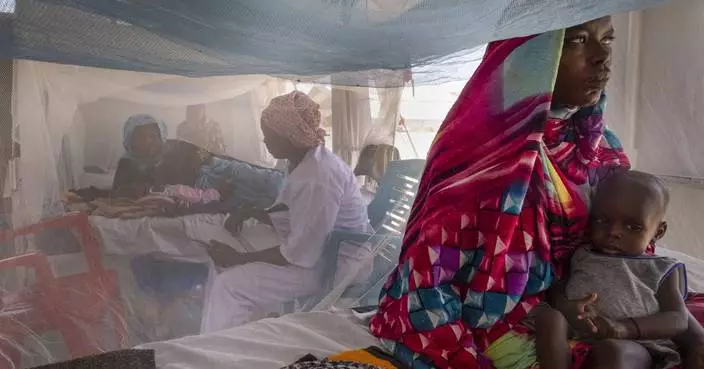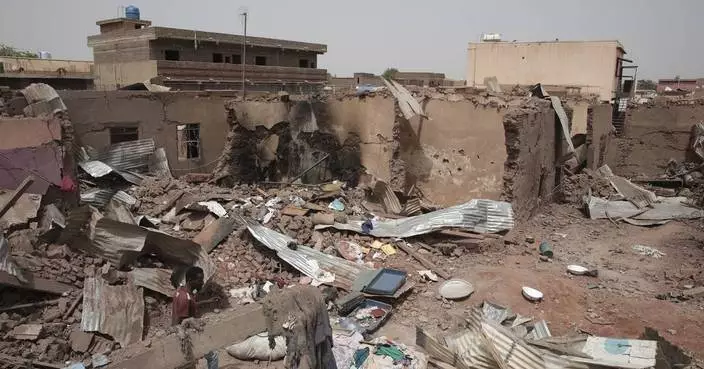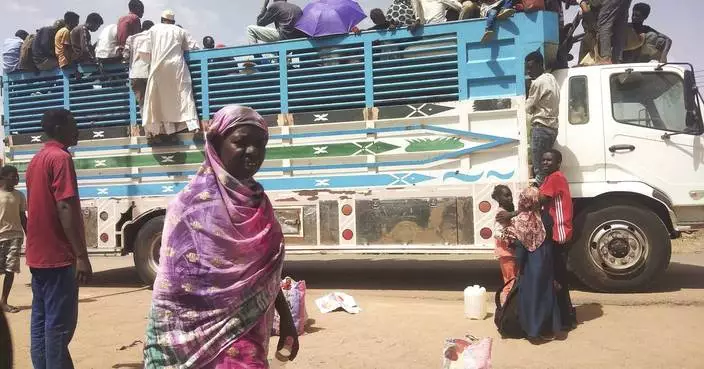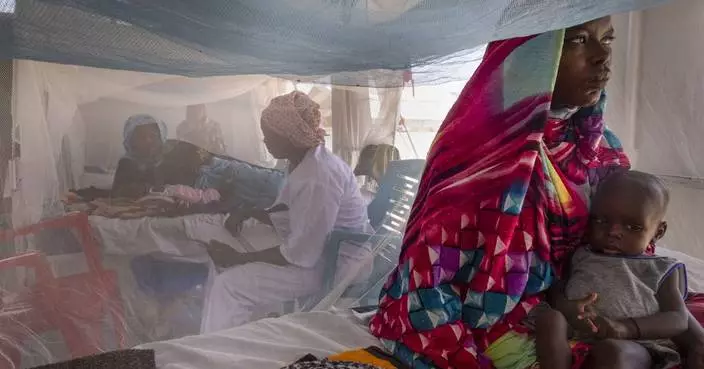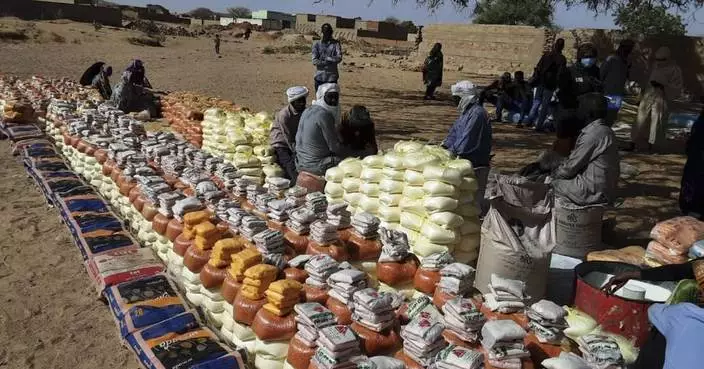Sudan's ruling body ratified a law banning the widespread practice of female genital mutilation, the justice ministry announced Friday, handing the movement for women’s rights in the African country a long-sought victory.
The Sovereign Council passed a set of sweeping amendments to the country’s criminal code late Thursday, including one that criminalized the deep-rooted practice. The draft law had been approved by the transitional government that came to power last year following the ouster of longtime autocrat Omar al-Bashir.
A U.N.-backed survey in 2014 estimated 87% of Sudanese women and girls between the ages of 15 and 49 have been subjected to the procedure. Most undergo an extreme form known as infibulation, which involves the removal and repositioning of the labia to narrow the vaginal opening.
Anyone found guilty of performing the procedure will be sentenced to up to three years in prison, according to a copy of the new law obtained by The Associated Press.
Female genital mutilation “degrades the dignity of women,” the justice ministry declared in its statement.
Prime Minister Abdalla Hamdok hailed the decision as “an important step in reforming the justice system.”
The ratification achieved a decades-long goal of women’s rights advocates and represented a win for the country’s technocratic leaders, who have been struggling to push democratic changes and roll back al-Bashir's legacy despite the persistent power of army generals in Sudan.
Under Hamdok, women have been appointed to four government ministries. Last fall, authorities overturned unpopular Islamist laws passed under al-Bashir that dictated women’s dress and criminalized drinking alcohol. Another amendment adopted Thursday allows Sudanese mothers to travel with their children outside the country without permission from their spouses.
During al-Bashir's rule some Sudanese clerics said forms of female genital mutilation, or FGM, were religiously allowed, arguing that the only debate was over whether it was required or not.
While many were elated by the the law's long-awaited passing, rights groups warned that the practice remains deeply entrenched in the region's conservative society and that enforcement poses a steep challenge. In neighboring Egypt, for example, where genital cutting was banned in 2008 and elevated to a felony in 2016, a government survey still found that nearly nine of every 10 Egyptian women had undergone the procedure.
Other veteran activists questioned the timing of the ratification, saying the coronavirus pandemic puts them at a disadvantage since they cannot mobilize awareness campaigns or police training in a country under lockdown.
“Currently there are fuel shortages and long daily power cuts as well as rising infections of COVID-19,” said Nahid Toubia, a leading Sudanese women’s health rights activist specializing in FGM. “Communication and people's mobility are severely hampered. These are not the conditions where advocacy for legislating against FGM is a priority or even possible."
Still the move, both symbolic and consequential, stirred hopes for stronger protection of personal liberties as Sudan moves toward democratic elections scheduled for 2022.
“Legal reviews and amendments will continue,” Hamdok pledged, “until we address all distortions in the legal systems in Sudan.”
UNITED NATIONS (AP) — Nearly 282 million people in 59 countries suffered from acute hunger in 2023, with war-torn Gaza as the territory with the largest number of people facing famine, according to the Global Report on Food Crises released Wednesday.
The U.N. report said 24 million more people faced an acute lack of food than in 2022, due to the sharp deterioration in food security, especially in the Gaza Strip and Sudan. The number of nations with food crises that are monitored has also been expanded.
Máximo Torero, chief economist for the U.N.'s Food and Agriculture Organization, said 705,000 people in five countries are at Phase 5, the highest level, on a scale of hunger determined by international experts — the highest number since the global report began in 2016 and quadruple the number that year.
Over 80% of those facing imminent famine — 577,000 people — were in Gaza, he said. South Sudan, Burkina Faso, Somalia and Mali each host many thousands also facing catastrophic hunger.
According to the report’s future outlook, around 1.1 million people in Gaza, where the Israel-Hamas war is now in its seventh month, and 79,000 in South Sudan are projected to be in Phase 5 and facing famine by July.
It said conflict will also continue to drive food insecurity in Haiti, where gangs control large portions of the capital.
Additionally, while the El Nino phenomenon peaked in early 2024, “its full impact on food security – including flooding and poor rain in parts of east Africa and drought in southern Africa, especially Malawi, Zambia and Zimbabwe – are like to manifest throughout the year.”
U.N. Secretary-General Antonio Guterres called the report “a roll call of human failings,” and that “in a world of plenty, children are starving to death.”
“The conflicts erupting over the past 12 months compound a dire global situation,” he wrote in the report's foreword.
Guterres highlighted the conflict in the Gaza Strip, as the enclave holds the highest number of people facing catastrophic hunger. There is also the year-old conflict in Sudan, which has created the world's largest internal displacement crisis “with atrocious impacts on hunger and nutrition,” he added.
According to the report, over 36 million people in 39 countries and territories are facing an acute hunger emergency, a step below the famine level in Phase 4, with more than a third in Sudan and Afghanistan. It's an increase of a million people from 2022, the report said.
Arif Husain, the U.N. World Food Program’s chief economist, said every year since 2016 the numbers of people acutely food insecure have gone up, and they are now more than double the numbers before the COVID-19 pandemic.
While the report looks at 59 countries, he said the target is to get data from 73 countries where there are people who are acutely food insecure.
Secretary-General Guterres called for an urgent response to the report’s findings that addresses the underlying causes of acute hunger and malnutrition while transforming the systems that supply food. Funding is also not keeping pace with the needs, he stressed.
“We must have the funding, and we also must have the access,” WFP’s Husain said, stressing that both “go hand-in-hand” and are essential to tackle acute food insecurity.
The report is the flagship publication of the Food Security Information Network and is based on a collaboration of 16 partners including U.N. agencies, regional and multinational bodies, the European Union, the U.S. Agency for International Development, technical organizations and others.
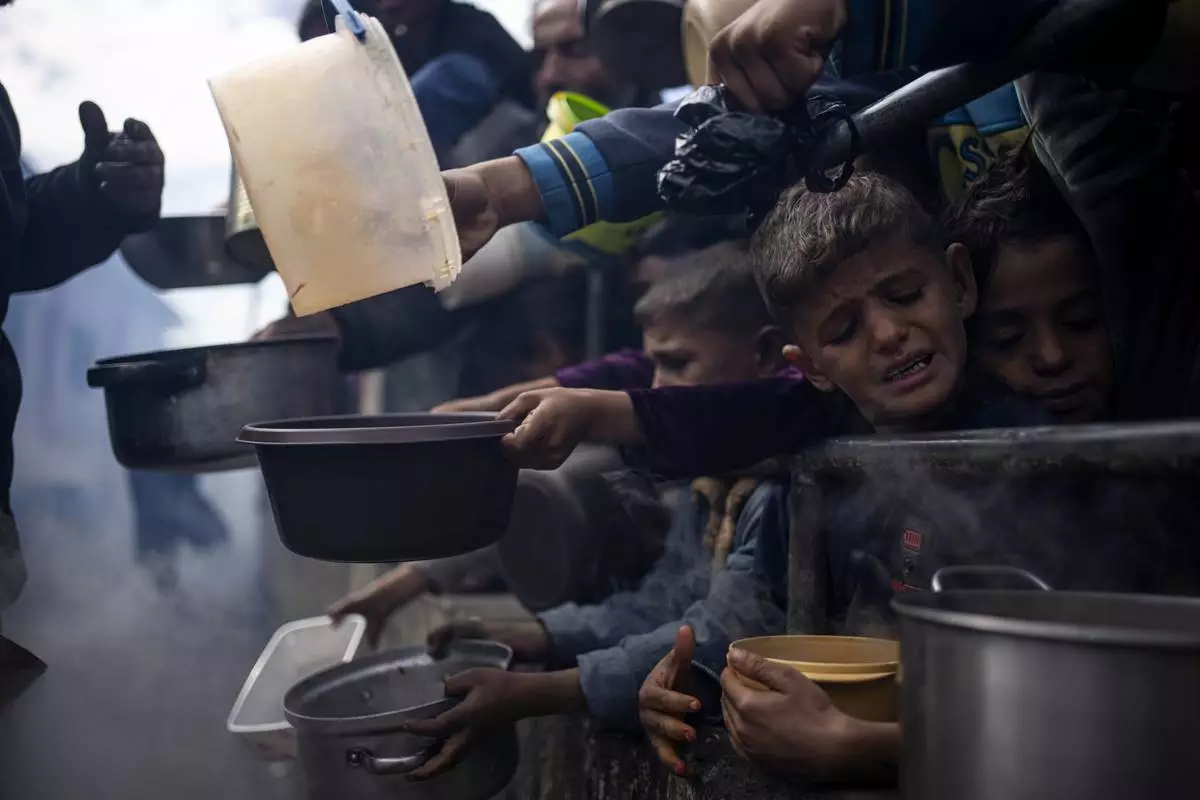
FILE - Palestinians line up for a meal in Rafah, Gaza Strip, Friday, Feb. 16, 2024. According to the Global Report on Food Crises released Wednesday, April 24, nearly 282 million people in 59 countries suffered from acute hunger in 2023, with war-torn Gaza the territory with the largest number of people facing famine. (AP Photo/Fatima Shbair, File)





